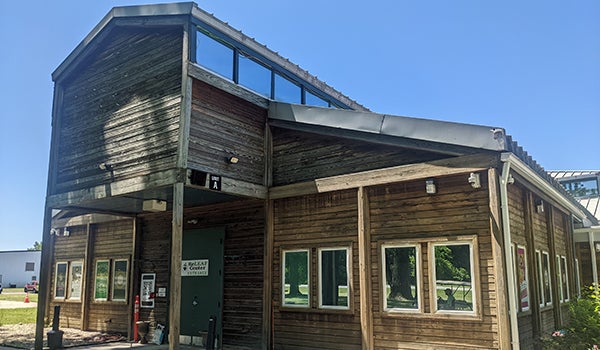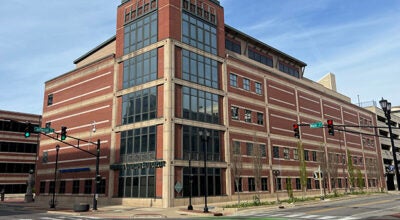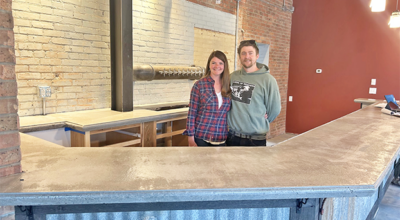Niles to consider adjusting limit on number marijuana retail licenses
Published 11:52 am Friday, June 17, 2022
|
Getting your Trinity Audio player ready...
|
NILES — The City of Niles could soon be cashing in on more cannabis.
The Niles City Council is considering an amendment to its current marijuana ordinance to allow for more provisional retail licenses in industrial-zoned properties.
According to City Administrator Rick Huff, a maximum of four provisioning center licenses are available in the city. Currently, three provisioning centers — Native Michigan Remedies, 2112 Industrial Dr., Primitiv Group Niles, 1286 S. 11th St. and Green Stem Provisioning, 1140 S. 11th St. Ste. A — are operational, and one more center has a provisional license, meaning it is not open yet but is expected to be operational soon.
The change is being considered following a recommendation by the City of Niles Planning Commission to allow local licensed growers, such as The ReLeaf Center, 1840 Terminal Road, the opportunity to sell their own products in an ever-changing market.
“Larger corporate producers are finding ways to undercut local growers and local growers grow specialty-type products and have their own market,” Huff said. “This would give that opportunity for a local grower to showcase their product and sell their product on their premises.”
“The intent was not so much to reward these current businesses but they’ve got their money invested and we would like to see them succeed in the long term,” said Councilman John DiCostanzo, who attended the planning commission meeting where the recommendation was made. “The motion would give them the opportunity for retail shelf space for their own property.”
Huff explained that in the City of Niles Industrial Park, six parcels of land can be used for marijuana businesses – growing, processing and retail. Outside of the industrial park, in industrial-zoned properties, an unlimited number of parcels can be used for growing and processing but only four parcels in the entire city are eligible for provisioning licenses.
The city could decide to keep the ordinance as-is, remove the limit on provisioning licenses altogether or amend the ordinance to allow current local growers to obtain a provisional license.
“What I worry about is creating a limit that just restricts it to the current licensed people only and prohibits anyone else from coming in and receiving a license,” Huff said. “I think that could be a little problematic.”
If the ordinance were to be amended to allow local licensed growers to sell retail, a total of 15 marijuana businesses currently in Niles would be able to sell provisions. DiCostanzo reminded the council that the city receives $56,400 for every licensed retail store and microbusiness located within its jurisdiction.
While Huff believes that a change to the ordinance would lead to an increase in provisioning license applications, he does not believe the situation would get out of control.
“I don’t know if that business model works for everyone,” he said. “It would be in industrial-zoned areas, not in a retail corridor.”
Councilwoman Jessica Nelson said she would support amending the ordinance to provide licenses to current growers in order to retain their businesses.
“Often, communities will figure out how to make the environment friendly so that they can attract these big promises of jobs,” she said. “What we’re seeing is that if we have these huge corporate entities that are coming in undercutting the price it’s like the Walmartization of marijuana industry. It’s going to do so much to suppress this fledgling industry that is paying more than EMTs get to be a bud tender. To me, it feels like if there’s something that’s within our power to do that, we can create an environment to retain our existing businesses. I think that we have to figure that out.”
While the move would be a boon for growers and cultivators looking to showcase their products in-house, Huff did say that if the ordinance was amended, he expects there to be pushback from the city’s licensed provisioning centers that made investments with the knowledge that only four provisional licenses were allowed in the city. Mayor Nick Shelton added that provisioning centers could open new locations in the city’s industrial-zoned properties if the provisional license limit is removed.
DiCostanzo said another factor to consider is the potential of Niles Charter Township opting in to legalized marijuana in the near future.
“It may end up moving some of the retail businesses out of the city and into the township,” he said. “That’s another consideration if we want to keep them in town or keep some of them in town because it sounds like that’s a real possibility for them. I’d love to keep them and some of these retailers may already have contingency plans.”
“I don’t think anything prevents existing businesses here from opening up a provisioning center in another community that allows it, except cost, maybe,” Shelton responded. “It is probably less expensive to open up a provisioning center in your existing location.”
After hearing support for both tailoring the ordinance to allow current businesses to obtain licenses as well as lifting the license limit altogether, Huff said he would consult further with council members and city attorney Robert Landgraf Jr. before bringing an action item before the council at a later date.







